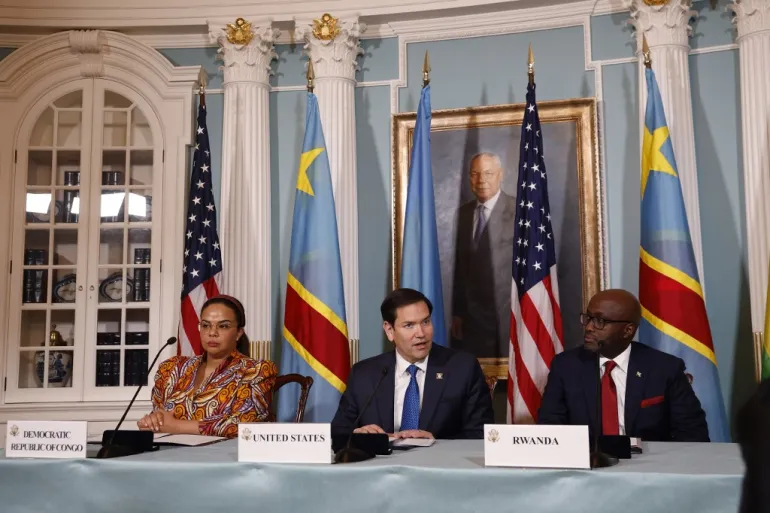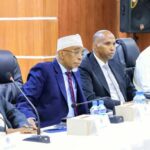KIGALI, Rwanda — In a significant step toward resolving one of Africa’s most enduring and deadly conflicts, the governments of Rwanda and the Democratic Republic of Congo (DRC) have submitted a joint draft peace proposal aimed at ending the violence in eastern Congo and opening the region to large-scale international investment.
The proposal, quietly negotiated over several months with facilitation by the United States, marks the most serious effort yet by the two neighboring countries to de-escalate tensions over the mineral-rich and war-ravaged provinces along their shared border.
“This is a pivotal moment,” said a senior U.S. official involved in the mediation. “There is a recognition on both sides that military confrontation has reached a point of diminishing returns.
The focus is now shifting to economic stabilization, regional cooperation, and political normalization.”
A Fragile Alliance
While details of the draft agreement have not been made public, people familiar with the text say it outlines a phased withdrawal of troops, the disarmament of proxy militias including M23 rebels, and the formation of a joint border monitoring mechanism.
It also includes provisions for infrastructure development, security sector reform, and donor-backed reconstruction efforts in the conflict zones.
The U.S. is reportedly pushing for substantial Western investment in the region as a stabilizing force, offering both countries incentives tied to reform benchmarks.
A former Trump national security adviser has described the initiative as “a Marshall Plan for the Great Lakes.”, according to Reuters news agency.
Despite the breakthrough, skepticism remains.
“There’s reason for cautious optimism, but we’ve seen peace deals before,” said a Congolese human rights lawyer based in Goma.
“The question is whether the armed groups on the ground and the political elites truly intend to follow through.”
The Roots of the Conflict
Eastern DRC has for years been the epicenter of a complex conflict involving Congolese government forces, ethnic militias, foreign-backed armed groups, and international mining interests.
Rwanda has been accused by the United Nations and several governments of supporting the M23 rebel group, which has seized territory in North Kivu. Rwanda denies these accusations, insisting its military posture is defensive.
Tensions reached a peak in 2024, with repeated border clashes and diplomatic breakdowns. Both countries recalled ambassadors and accused each other of violations of territorial integrity and war crimes.
Geopolitical Stakes
The peace proposal is being closely watched by regional stakeholders, including Uganda, Burundi, and Angola, as well as China and the European Union—both of which have vested interests in Congolese minerals.
The United States has recently increased its engagement in the region, viewing the conflict as a destabilizing force that undermines broader U.S.-Africa strategic goals.
Analysts say Washington’s involvement in this latest peace effort reflects a shift from military support to economic statecraft.
“The U.S. is no longer just sending advisors,” said a Rwandan policy researcher. “They’re tying peace to investment, accountability, and regional integration.”
Meanwhile, a summit is expected in Kigali later this month, where heads of state and diplomatic envoys will review and potentially sign the framework agreement.
U.S. officials say they are working to secure buy-in from African Union representatives, the UN Security Council, and multilateral development banks.
“This peace deal could be a turning point,” said the U.S. mediator who spoke to the Guardian . “But it’s fragile, and it will depend on political courage on both sides.”





